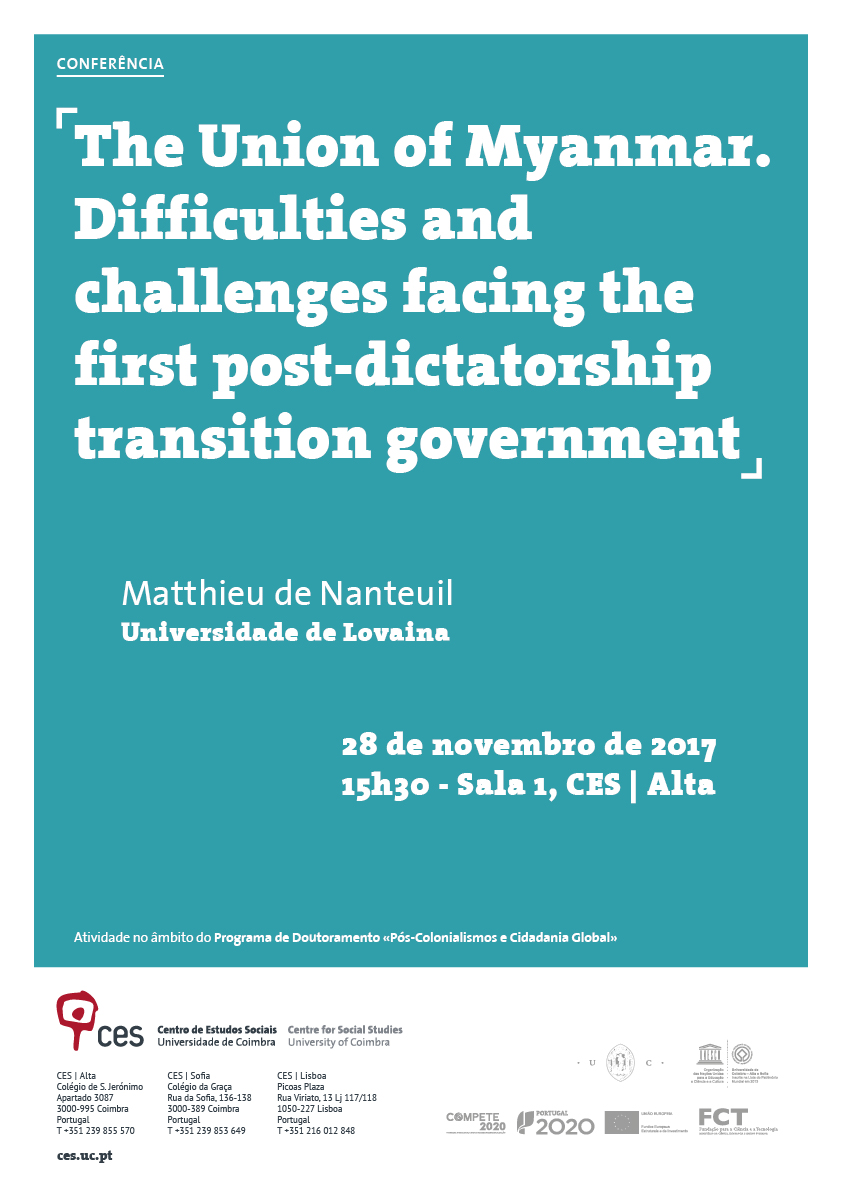Lecture
The Union of Myanmar. Difficulties and challenges facing the first post-dictatorship transition government
Matthieu de Nanteuil (Universidade de Lovaina)
November 28, 2017, 15h30
Room 1, CES | Alta
Summary
This conference will be based on a fact-finding mission carried out in July 2016 to better understand the difficulties and challenges facing the “transition government” of the Republic of the Union of Myanmar, elected in November 2015. It will also discuss a number of events that have marked the political landscape in Myanmar (formerly Burma) since then. Of the many challenges to be addressed, the humanitarian tragedy that has befallen the Rohingya people, is the most frequently referred to by the international community and, in particular, by the United Nations. The situation on the ground is very clear, even though we were not allowed into the refugee camps. It is, however, important to consider the problem in all of its depth and complexity. As unacceptable as it may be, the situation is deeply rooted in the country’s chaotic past, stretching from its colonisation to the present day and including half a century of military dictatorship from 1962 to 2015, which continued uninterrupted despite the attenuation of police and political brutality in the latter years (2012-2015). Likewise, it is important not to reduce the current situation in Myanmar to the Rohingya crisis. The first post-dictatorship transition government is faced with many other challenges and difficulties, beyond the ongoing constitutional transition process: regular clashes between the national army and autonomy-seeking ethnic groups, considerable social and economic issues, the emergence of a civil society (which, although increasingly dynamic, finds it difficult to relate to the pro-democracy movements of the 80s and 90s). This talk will give an overview on these different aspects.
Bio note
Matthieu de Nanteuil. Professor da Universidade de Lovaina, é doutorado em sociologia (Sciences Po Paris, 1999), e membro do Centro de Pesquisa Interdisciplinar Democracia, Instituições, Subjetividade (CriDIS).
Depois de trabalhar quase 7 anos na observação do mundo do trabalho, em França (ANACT) e na Europa (Fundação de Dublin), ingressou na Universidade de Lovaina em 2001. Foi diretor do Centro de Pesquisa Democracia, Instituições, Subjetividade (CriDIS) de 2011 a 2015, e preside atualmente ao Instituto de Análise de Mudanças em História e Sociedades Contemporâneas (IACCHOS).
A sua pesquisa centra-se na economia solidária, nas teorias da justiça social, bem como as formas de violência e não-violência que atravessam o espaço público democrático - na sua componente liberal em particular.
Activity within the Doctoral Programme «Post-Colonialisms and Global Citizenship» and «Human Rights in Contemporary Societies»


